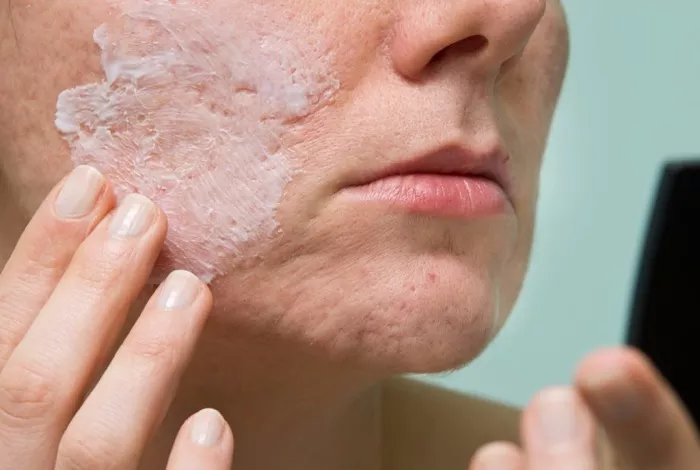Intermittent Explosive Disorder (IED) is a mental health condition characterized by recurrent episodes of impulsive, aggressive, violent behavior, or angry verbal outbursts grossly out of proportion to the situation at hand. These episodes are often sudden and unprovoked, causing significant distress or impairment in social, occupational, or other areas of functioning. IED is a lesser-known but serious disorder that affects individuals’ quality of life and those around them.
Definition and Diagnostic Criteria
Intermittent Explosive Disorder Defined
Intermittent Explosive Disorder is classified in the Diagnostic and Statistical Manual of Mental Disorders, Fifth Edition (DSM-5) under the category of Disruptive, Impulse-Control, and Conduct Disorders. It is characterized by discrete episodes of failure to resist aggressive impulses, resulting in serious assaults or property destruction. The intensity of the aggression is disproportionate to any precipitating psychosocial stressor.
Diagnostic Criteria
According to the DSM-5, the diagnostic criteria for IED include:
Recurrent Behavioral Outbursts: These outbursts are manifested by either:
Verbal aggression (e.g., temper tantrums, tirades, verbal arguments or fights) or physical aggression toward property, animals, or other individuals, occurring twice weekly on average for a period of three months. The physical aggression does not result in damage or destruction of property and does not result in physical injury to animals or other individuals.
Three behavioral outbursts involving damage or destruction of property and/or physical assault involving physical injury against animals or other individuals occurring within a 12-month period.
Aggressiveness Out of Proportion: The degree of aggressiveness expressed during the recurrent outbursts is grossly out of proportion to the provocation or to any precipitating psychosocial stressors.
Episodes Are Not Premeditated: The recurrent aggressive outbursts are not premeditated and are not committed to achieve some tangible objective (e.g., money, power, intimidation).
Marked Distress or Impairment: The aggressive outbursts cause either marked distress in the individual or impairment in occupational or interpersonal functioning, or they are associated with financial or legal consequences.
Age of Onset: The individual is at least six years old (or equivalent developmental level).
Exclusion of Other Mental Disorders: The recurrent aggressive outbursts are not better explained by another mental disorder and are not attributable to another medical condition or the physiological effects of a substance.
Symptoms and Manifestations
Emotional Symptoms
Individuals with IED often experience feelings of heightened tension or arousal before an aggressive outburst, followed by a sense of relief or release afterward. However, this relief is frequently accompanied by feelings of remorse, regret, or embarrassment. Emotional symptoms include:
1. Intense anger or rage
2. Irritability
3 Feeling out of control during the episode
4. Shame or guilt after the aggressive behavior
Behavioral Symptoms
Behaviorally, IED is marked by physical aggression or destruction of property. These behaviors are typically impulsive and unplanned. Common manifestations include:
1. Verbal outbursts, such as shouting or heated arguments
2. Physical violence, such as hitting or pushing others
3. Property destruction, like breaking objects or damaging property
Physical Symptoms
During an outburst, individuals may also experience various physical symptoms due to increased autonomic arousal. These can include:
1. Heart palpitations
2. Chest tightness
3. Headaches
4. Tremors
5. Increased energy
Psychosocial Impact
The disorder significantly impacts the individual’s social and occupational life. Relationships may suffer due to frequent conflicts and aggressive behavior. Professional life can be disrupted by these outbursts, leading to job loss or disciplinary actions. Social isolation is common as individuals with IED may be avoided by peers and family members due to their unpredictable and aggressive behavior.
Causes and Risk Factors
Biological Factors
Several biological factors contribute to the development of IED, including:
Genetics: There is evidence suggesting that IED may run in families, indicating a potential genetic predisposition.
Neurotransmitters: Imbalances in certain neurotransmitters, particularly serotonin, have been implicated in impulsive aggression.
Brain Structure and Function: Abnormalities in the brain regions responsible for regulating behavior and emotions, such as the amygdala and prefrontal cortex, have been observed in individuals with IED.
Environmental Factors
Environmental influences also play a critical role in the development of IED. These factors include:
Childhood Trauma: Exposure to violence or abuse during childhood is a significant risk factor for developing IED.
Parenting Style: Harsh or inconsistent disciplinary practices can contribute to the onset of aggressive behaviors in children.
Substance Abuse: The use of alcohol or drugs can exacerbate aggressive tendencies and may be a factor in the development of IED.
Psychosocial Factors
Psychosocial elements such as stress and social learning also contribute to IED. These include:
Stressful Life Events: High levels of stress, whether chronic or acute, can trigger aggressive outbursts in susceptible individuals.
Social Learning: Observing and mimicking aggressive behavior from family members or peers can lead to the development of similar behaviors.
Diagnosis and Assessment
Clinical Interview
A comprehensive clinical interview is essential for diagnosing IED. The interview typically involves:
1. Gathering a detailed history of the individual’s behavior patterns, including the frequency, intensity, and triggers of aggressive outbursts.
2. Assessing the impact of these behaviors on the individual’s social, occupational, and personal life.
3. Exploring any co-occurring mental health conditions, such as mood disorders, anxiety disorders, or substance abuse.
Psychological Testing
Psychological assessments and questionnaires can aid in diagnosing IED and ruling out other conditions. Commonly used tools include:
Aggression Scales: These scales measure the frequency and severity of aggressive behaviors.
Personality Inventories: Assessments like the Minnesota Multiphasic Personality Inventory (MMPI) can provide insights into personality traits and potential comorbid conditions.
Structured Interviews: Tools such as the Structured Clinical Interview for DSM Disorders (SCID) can help in systematically assessing the diagnostic criteria for IED.
Behavioral Observation
Direct observation of the individual’s behavior in different settings can provide valuable information about the nature and triggers of aggressive outbursts. This method can be particularly useful in assessing children and adolescents.
Collateral Information
Gathering information from family members, teachers, or colleagues can offer additional perspectives on the individual’s behavior and the context in which aggressive episodes occur. This information can be critical in forming a comprehensive understanding of the disorder.
Treatment Options
Psychotherapy
Psychotherapy is the cornerstone of treatment for IED. Effective therapeutic approaches include:
Cognitive-Behavioral Therapy (CBT): CBT helps individuals identify and change maladaptive thought patterns and behaviors. Techniques such as cognitive restructuring, anger management, and relaxation training are commonly used.
Dialectical Behavior Therapy (DBT): DBT focuses on teaching skills to manage intense emotions and improve interpersonal relationships. It includes modules on mindfulness, distress tolerance, emotional regulation, and interpersonal effectiveness.
Group Therapy: Group therapy can provide a supportive environment where individuals with IED can share experiences and learn from others facing similar challenges.
Medication
Medications may be prescribed to help manage symptoms, particularly when psychotherapy alone is insufficient. Commonly used medications include:
Selective Serotonin Reuptake Inhibitors (SSRIs): These antidepressants, such as fluoxetine or sertraline, can help reduce impulsivity and aggression.
Mood Stabilizers: Medications like lithium or anticonvulsants (e.g., valproate) may be used to stabilize mood swings and reduce aggressive behavior.
Antipsychotics: In some cases, atypical antipsychotics (e.g., risperidone) can be effective in managing severe aggression.
Lifestyle Modifications
Making certain lifestyle changes can also support the treatment of IED. These include:
Stress Management: Techniques such as mindfulness meditation, yoga, and regular physical exercise can help reduce overall stress levels.
Healthy Coping Strategies: Learning and practicing healthy ways to cope with anger and frustration, such as deep breathing, taking a time-out, or engaging in hobbies.
Avoiding Triggers: Identifying and avoiding situations or substances that trigger aggressive outbursts can be beneficial.
Family Involvement
Involving family members in the treatment process can be crucial for several reasons:
Education: Educating family members about IED can help them understand the disorder and provide better support to the affected individual.
Communication Skills: Family therapy can improve communication skills and reduce conflicts within the family.
Support Systems: Creating a supportive home environment can enhance treatment outcomes and help prevent relapse.
Prognosis and Long-term Management
Prognosis
The prognosis for individuals with IED varies. With appropriate treatment, many individuals experience significant improvements in managing their aggressive behaviors and reducing the frequency and intensity of outbursts. Early intervention and a combination of psychotherapy and medication typically yield the best outcomes.
Challenges in Treatment
Several challenges can impact the treatment and management of IED:
Stigma: Stigma associated with mental health disorders, particularly those involving aggression, can deter individuals from seeking help.
Comorbid Conditions: The presence of co-occurring mental health disorders can complicate treatment and require a more integrated approach.
Adherence: Adherence to treatment plans, including medication and therapy, can be challenging for some individuals, impacting long-term outcomes.
Strategies for Long-term Management
Effective long-term management of IED involves several strategies:
Ongoing Therapy: Continued engagement in psychotherapy, whether individual or group-based, can help maintain progress and prevent relapse.
Medication Management: Regular follow-up with a healthcare provider to monitor and adjust medications as needed.
Support Networks: Building and maintaining strong support networks, including family, friends, and support groups, can provide ongoing encouragement and assistance.
Self-care Practices: Incorporating regular self-care practices, such as exercise, adequate sleep, and healthy nutrition, can support overall well-being and emotional stability.
Conclusion
Intermittent Explosive Disorder is a complex and challenging mental health condition characterized by recurrent episodes of impulsive aggression. Understanding the causes, symptoms, and treatment options is essential for effectively managing the disorder and improving the quality of life for affected individuals and those around them. With a comprehensive approach that includes psychotherapy, medication, lifestyle modifications, and family involvement, individuals with IED can achieve significant improvements and lead more stable, fulfilling lives. Early diagnosis and intervention are crucial, as is the need for ongoing support and treatment to manage this disorder effectively.
[inline_related_posts title=”You Might Be Interested In” title_align=”left” style=”list” number=”6″ align=”none” ids=”9031,8959,8955″ by=”categories” orderby=”rand” order=”DESC” hide_thumb=”no” thumb_right=”no” views=”no” date=”yes” grid_columns=”2″ post_type=”” tax=””]































